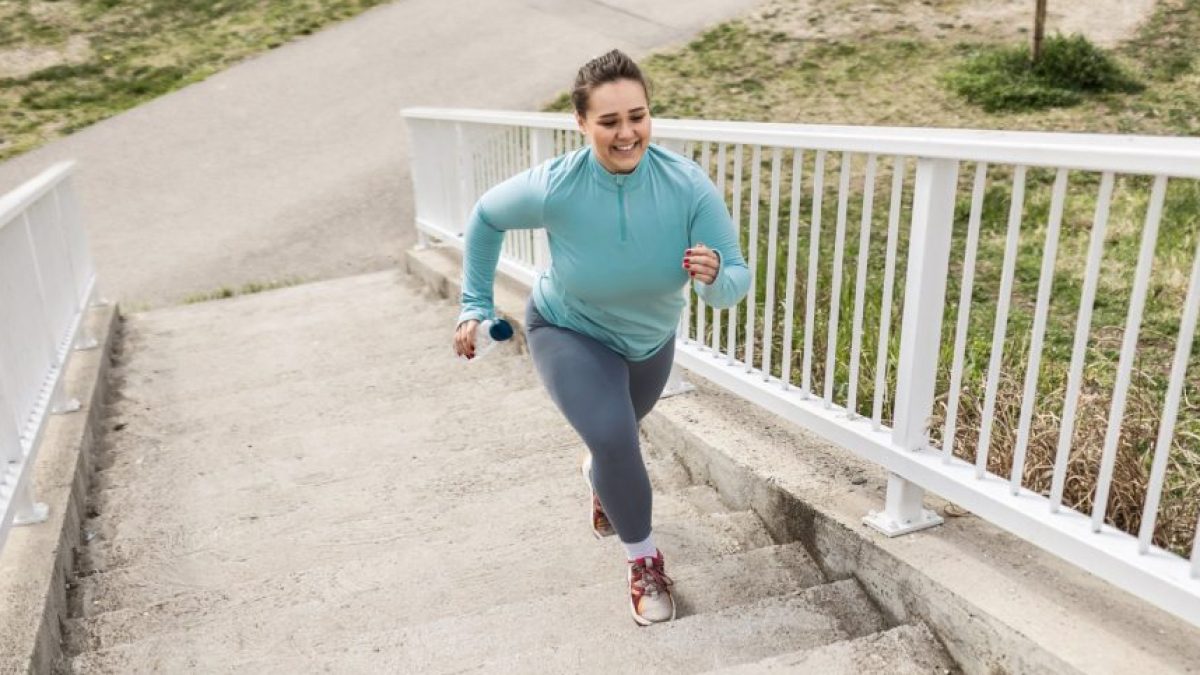Weight-loss drugs are on the rise but they could be a short-term fix – The i Paper asks experts how to shed the pounds sustainably
As this summer comes into view, Google Searches for weight loss are up – along with demand for jabs such as Ozempic and Mounjaro.
But not everyone wants to use drugs to lose weight – and they shouldn’t, according to fitness coach Dominika Blonska. “It is not a magic fix,” she says. “A lot of people who take it use it as a short-term fix, they spend hundreds of pounds, and as soon as they stop using it they regain the weight as they haven’t improved their eating habits and have little knowledge on healthy nutrition.”
Each person’s weight-loss journey is different and depends on genetics and lifestyle. We’re shown images of effortless rapid weight loss on social media, but the reality is such transformations, even if real, would be unsustainable. Break your weight loss down into small, realistic goals to focus on one step at a time and it’ll feel more achievable, avoid disappointment and keep motivation high.
To find out how to lose weight sustainably, The i Paper asked the experts for their best tips in time for the British summer.
Cut 500 calories a day
The only way to lose weight is to be in a calorie deficit, where you’re burning more calories than consuming. But this doesn’t mean you need to survive on salad. Just a small deficit will be enough. National guidelines recommend a reduction in intake of 500 to 600 calories a day.
According to the NHS, the average man needs to reduce his daily energy intake to about 1,900 calories in order to lose weight. Women should aim at 1,400. You probably need to eat less than you think, but starving yourself is not a good idea – losing weight too quickly can cause fatigue and muscle loss.
The key, Blonska says, is to be consistent – and realistic. “Don’t try the extremes, the diet should be doable on a busy Monday or a lazy Sunday.”
Eat lean protein with every meal
Blonska recommends eating 1g of protein per pound of bodyweight, and making sure you include protein like lean meat, poultry, fish, beans and lentils in every meal. Protein reduces appetite, so that you are less likely to overeat.
Pile your plate high with vegetables and salads – low in calories but high in filling fibre and nutrients. The We Run and UK Athletics-certified coach Amanda Grimm recommends focusing on nutrient-dense whole foods, including vegetables, whole grains, lean protein, and healthy fats.
Simple swaps can also help lower daily calories, like exchanging white bread for wholemeal and ice cream for Greek yoghurt with berries and honey.
“A well-planned, well-balanced diet is key to weight loss,” adds Penny Weston, a fitness and nutrition expert. “Faddy diets are usually unhealthy and not sustainable. They may give you an initial quick weight loss, but a lot of that is often water retention or will be put straight back on when eating normally again. I believe that crash diets are destined to fail.”
A safe and sustainable amount of weight to lose is between 0.5kg to 1kg per week.
 Dominika Blonska is a registered nurse and coachTurn household chores into a workout
Dominika Blonska is a registered nurse and coachTurn household chores into a workout
Blonska recommends three to four workouts a week, whether it’s a gym class, 15 minute HIIT workout at home, or weight session at the gym. However, that isn’t always possible.
The good news is you can incorporate exercise into usual daily activities. She suggests carrying and loading groceries, walking while taking phone calls, taking the stairs at every opportunity, and parking the car further away from the shops. While cleaning your home, put energy into vacuuming, and maybe have a little dance while you do it.
Weston adds that aerobic exercise such as running, swimming and cycling, whether inside or out, will burn the most calories, but the key is finding something sustainable that fits your lifestyle and motivates you. “Perhaps the commitment of a course of yoga lessons or accountability of meeting a friend for a run,” she suggests.
Walking is also an effective way to burn fat, and registered nurse and PT Chanelle Smith, lead at Jorja Healthcare Group, says it can burn around 100 calories a mile, equating to approximately 300 calories per hour.
 Registered nurse and PT Chanelle Smith (Photo: Jorja Healthcare Group)Get seven hours sleep
Registered nurse and PT Chanelle Smith (Photo: Jorja Healthcare Group)Get seven hours sleep
“The importance of getting enough good quality sleep when losing weight and maintaining a healthy weight can’t overstated,” says Weston. “A lack of sleep can affect metabolism, meaning that your body doesn’t burn calories as effectively.”
The NHS recommends healthy adults need around seven to nine hours of sleep per night. This changes in children, who need more, and older adults, who tend to need less.
A study published in the National Institutes of Health in 2022 found that better sleep quantity and quality improved the likelihood of successful weight loss by 33 per cent. Last year, the Sleep Foundation shared that restricted sleep and poor quality sleep could lead to metabolic disorders, weight gain, and an increased risk of obesity.
Weston also believes people that get less sleep tend to make unhealthier choices in the day: “Sleep-deprived people tend to reach for high-fat, high calorie foods rather than healthier choices.”
Drink eight glasses of water a day
Multiple studies have shown that making sure you drink enough water can help weight loss. “It’s easy to mistake dehydration for hunger and consume calories your body doesn’t need when a glass of water may have done the trick,” says Weston. She recommends aiming for six to eight glasses a day, as does the NHS.
Don’t eat after 8pm
Studies have shown that eating later in the evening is not a good idea if you are trying to lose weight. A team at Brigham and Women’s Hospital, in Boston, USA, found that late evening adversely affects hunger levels and the way people burn calories, as well as the way they store fat. Make 8pm your cut off and if you aren’t hungry in the mornings, don’t eat straight away.
Follow the 80/20 rule
Being in a calorie deficit will lead to weight loss but it’s important that each meal is also rich in nutrients. “Keep a check on portion sizes, cut down on high fat, processed and high sugar foods and find snacks you enjoy that can nourish your body,” says Weston.
Blonska follows the 80 per cent rule which emphasises eating healthy, nutritious foods 80 per cent of the time and occasional treats the other 20 per cent. This helps keeps cravings at bay.
Pair wine with water
If you’re hoping to be in a calorie deficit, beware of liquid calories, especially in alcohol. A standard glass of wine can contain up to 158 calories, a pint of 5 per cent strength beer up to 222, and a 50ml glass of 17 per cent cream liqueur has 153 calories. A double measure of spirits averages around 100 calories.
“Too much alcohol can make you gain belly fat,” says Weston. “I wouldn’t say you need to give it up altogether but limiting the amount you drink can definitely make a difference.”
According to the NHS, alcohol contains almost as many calories per gramme as fat, and regular consumption of alcohol can have a noticeable impact on your waistline.
It advises having a glass of water after every alcoholic drink, not drinking in rounds, taking small sips, or adding a splash of soda water to drinks to make the same number of units last longer.
